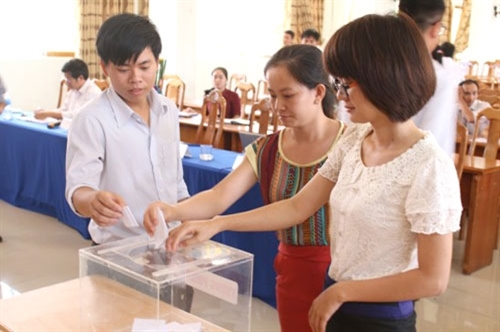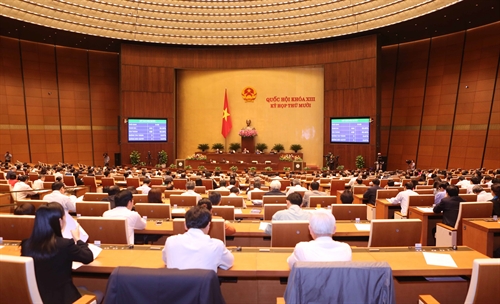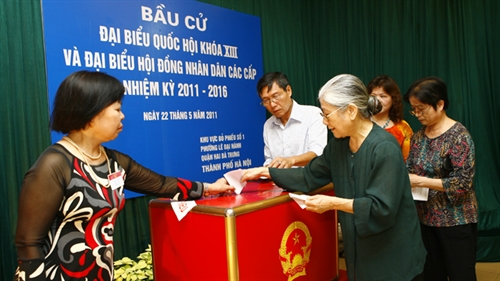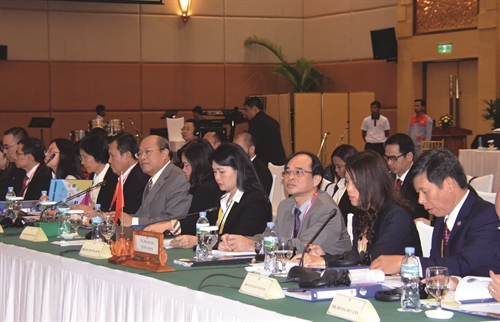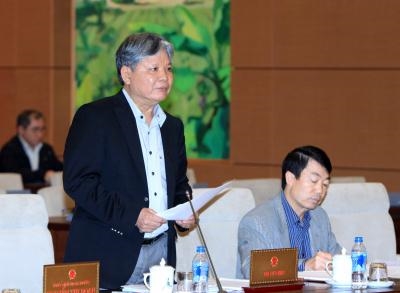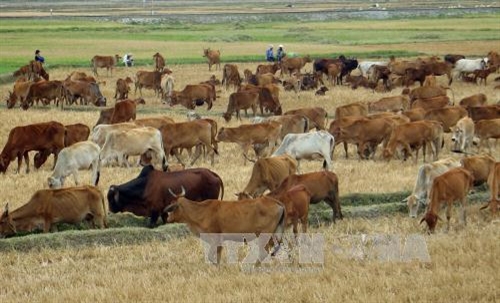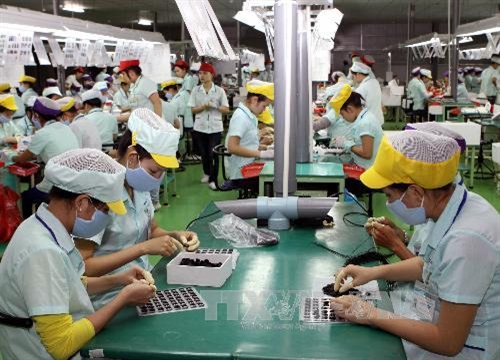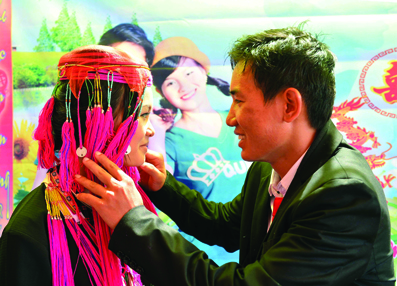With effect from July 1, the Law on Oversight Activities of the National Assembly and People’s Councils (the Law) aims to renovate oversight activities of the National Assembly, People’s Councils and other members within the political system in line with the recent renewal of the organization of these entities.
The Law focuses on regulating the oversight competence of National Assembly and People’s Councils and their bodies and deputies and the order and procedures for carrying out oversight activities.
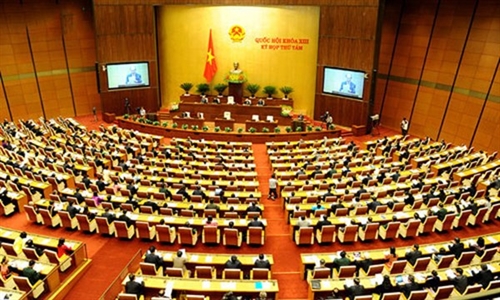 |
| The Law clearly states that only the National Assembly may conduct supreme oversight at its sessions__Photo: Internet |
Raising the effect of oversight activities of the National Assembly
The Law defines oversight as not only monitoring, review and assessment of operations of agencies, organizations and individuals subject to oversight but also handling of such agencies, organizations and individuals.
Regarding supreme oversight by the National Assembly, the Law clearly states that only the National Assembly may conduct supreme oversight at its sessions. This new provision helps differentiate between supreme oversight by the National Assembly and oversight by its bodies and deputies. The National Assembly will have to report its supreme oversight activities to voters nationwide via the mass media and voter meetings of National Assembly deputies, the Law says.
The National Assembly will keep an eye on the State Audit Office of Vietnam and the National Election Council, in addition to watching activities of the President, the National Assembly Standing Committee, the Government and other entities specified under current legislation.
Compared to the 2003 version, the Law adds the following supreme oversight activities: examining specialized oversight reports, reports of ad-hoc committees, the National Assembly Standing Committee’s reports on oversight recommendations of the National Assembly’s bodies, deputies’ delegations and deputies, and collecting and casting votes of confidence on officials elected or ratified by the National Assembly.
The competence to report legal documents showing signs of violating the Constitution, laws and resolutions of the National Assembly to the National Assembly for examination is defined in Article 14. Accordingly, the President, the Government, the Ethnic Council, Committees of the National Assembly, the Supreme People’s Court, the Supreme People’s Procuracy, the State Audit Office of Vietnam, the Vietnam Fatherland Front Central Committee, central agencies of the Front’s member organizations and individual National Assembly deputies are vested with this competence.
The time limit for complying with oversight conclusions and proposals is clearly set in the Law.
Oversight activities of People’s Councils
The Law basically retains current provisions on subjects and scope of oversight by People’s Councils in the 2003 Law on Organization of People’s Councils and People’s Committees. It revises forms of oversight and details the order and procedures for conducting these activities.
The Law introduces a number of new oversight activities of standing bodies of People’s Councils, including consideration of answers given by questioned persons when People’s Councils are in recess; explanations at their meetings; and oversight of settlement of voter petitions.
Particularly, provisions on oversight activities of People’s Council deputies and deputies’ groups are introduced for the first time. The Law establishes the order and procedures for questioning, oversight of legal documents and law enforcement in localities and the settlement of complaints, denunciations and petitions of citizens. People’s Council deputies’ groups will be responsible for organizing oversight activities of People’s Council deputies. Provincial- or district-level People’s Council deputies’ groups will look to the observation of the Constitution, laws, legal documents of superior state agencies and resolutions of People’s Councils of the same level, and matters assigned by their People’s Councils.
The Law also requires oversight programs, plans, reports, resolutions, conclusions and recommendations as well as results of compliance with oversight conclusions and recommendations be published on the e-portal of oversight-conducting agencies or the mass media, except those containing state secrets.
Oversight resolutions of the National Assembly and its Standing Committee and of People’s Councils have binding legal effect, the Law says.- (VLLF)
